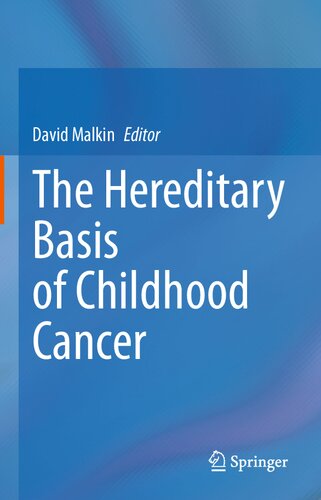

Most ebook files are in PDF format, so you can easily read them using various software such as Foxit Reader or directly on the Google Chrome browser.
Some ebook files are released by publishers in other formats such as .awz, .mobi, .epub, .fb2, etc. You may need to install specific software to read these formats on mobile/PC, such as Calibre.
Please read the tutorial at this link: https://ebookbell.com/faq
We offer FREE conversion to the popular formats you request; however, this may take some time. Therefore, right after payment, please email us, and we will try to provide the service as quickly as possible.
For some exceptional file formats or broken links (if any), please refrain from opening any disputes. Instead, email us first, and we will try to assist within a maximum of 6 hours.
EbookBell Team

4.0
76 reviewsThis volume elaborates on the research and clinical implications of the hereditary and molecular basis of childhood cancers. The focus of the ‘disease-related’ chapters of the book is to integrate what is known about the molecular basis of that particular clinical entity (or group of related entities) with the clinical manifestations, to relate the relationship of the molecular oncologic pathways with relevant developmental or non-human species biology in order to better understand the complexity of these systems. The resulting clinical implications of understanding this biology are elaborated on. Chapters 13-16 discuss the broader psychosocial, ethical and genetic counseling issues that arise and that are so critical to translating the knowledge gained from advances in molecular genetics into the clinic. Chapter 12 in particular provides a unique perspective of the application of this knowledge in less-developed nations where ‘modern’ technologies may not be readily available, but where the clinical manifestations of these disorders are prevalent.